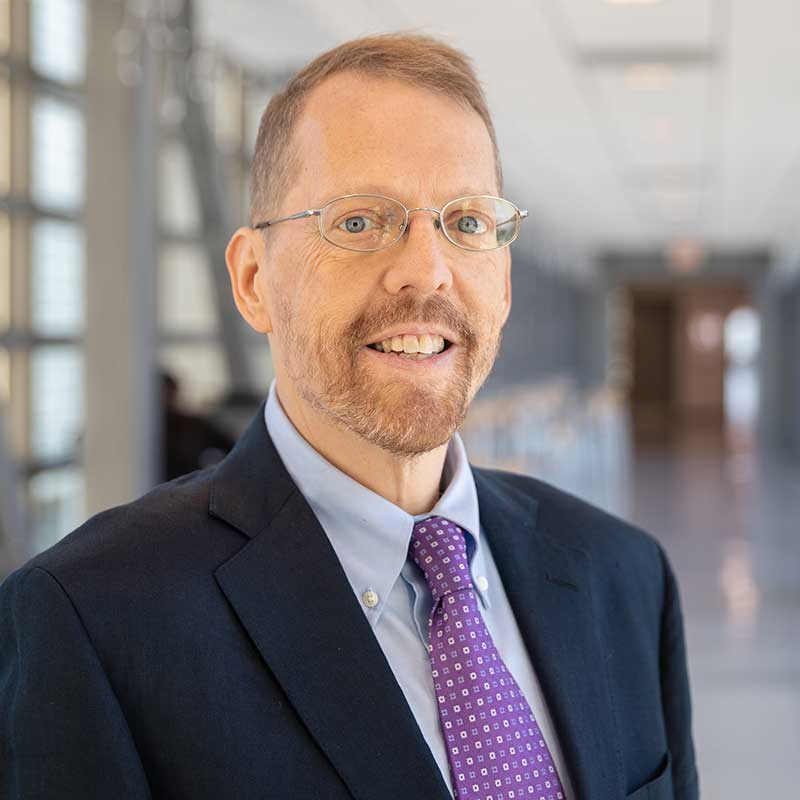Alumnus David A. Bader to be Inducted into Clark School Innovation Hall of Fame
In recognition for his role in creating the Linux supercomputer, Department of Computer and Electrical Engineering (ECE) alumnus David A. Bader (Ph.D., ‘96, electrical engineering) will be inducted into the A. James Clark School of Engineering’s Innovation Hall of Fame (IHOF) on Wednesday, November 9—joining a small but distinguished community of inventors who use their knowledge, perseverance, innovation, and ingenuity to change how we do things in the world. Bader is currently a Distinguished Professor and founder of the Department of Data Science in the Ying Wu College of Computing and the inaugural director of the Institute for Data Science at the New Jersey Institute of Technology. As an Assistant Professor at the University of New Mexico in 1998, and pioneering ideas he developed during his time at the University of Maryland, Bader began building one of the first supercomputers that used readily available commercial-off-the-shelf (COTS) parts and a high-speed, low-latency interconnection network. “While I was at Maryland, we built the first high-performance cluster of DEC AlphaServer multiprocessor computers, essentially a commodity-based supercomputer that broke the mold of traditional monolithic supercomputers,” said Bader. His prototype using Intel processors and a high-speed interconnection network led to the development of the first Linux supercomputer, named “RoadRunner.” This breakthrough opened the door for the “democratization of supercomputers” by enabling users to assemble a supercomputer at a fraction of the cost, which created accessibility to these systems to a wider audience, allowing anyone to design and program their own high-performance computers. Bader goes on to explain that previously, users would have to write code specifically for that one supercomputer, adding that his work ultimately helped bring supercomputing capabilities to a much wider range of users. “Our work provided the first programming paradigm for what is ubiquitous today on today’s parallel computers with multicore processors and accelerators.” “It was very important to me to understand that we needed harness the economics of commodity-based systems in order to make supercomputing ubiquitous rather than in the hands of just a couple organizations,” explained Bader. “We needed to find technologies that would be cost effective, affordable and supply the high performance that traditional supercomputers could. Democratizing it meant that any person around the planet who had access to electricity would be able to work on important problems that mattered.” When the Roadrunner supercomputer was put into widespread use on the National Technology Grid in 1999, it was ranked one of the 100 fastest supercomputers in the world. A recent study by Hyperion Research calculated the value of Linux supercomputing developed by Bader has had an economic worth of over $100 trillion over the last 25 years. “Dr. Bader was always passionate about high performance computing since his early days at the University of Maryland and how to build commodity-based systems that can be afforded and effectively used by scientists and engineers” says Professor Joseph JaJa, Bader’s former faculty advisor. JaJa adds “Dr. Bader has shown a special knack at co-designing hardware and software systems built from inexpensive components to create very powerful supercomputers that were competitive with the most expensive mainframes. He showed incredible innovation and drive to achieve this goal.” Considered a leading authority in the areas of science, engineering, computing and data science, Bader has led an extensive career. He has served as lead scientist with DARPA and as an advisor to the White House, mostly recently on the National Strategic Computing Initiative (NSCI) and Future Advanced Computing Ecosystem (FACE). He is a Fellow of the IEEE, ACM, AAAS, and SIAM, and a recipient of the IEEE Sidney Fernbach Award, one of the highest awards in computing. He has co-authored over 300 scholarly papers and has received best paper awards from ISC, IEEE HPEC and IEEE/ACM SC. He is currently Editor-in-Chief of the ACM Transactions on Parallel Computing. His research interests center on data science, high performance computing and real-world analytics. As an alum, Bader maintains his relationship with the Department of Electrical and Computer Engineering, and most recently established the David A. Bader Endowed Graduate Student Program Support Fund in Electrical and Computer Engineering. As a Ph.D. student, Bader began organizing social and academic activities for graduate students as a way of building community for students beyond the classrooms and labs, resulting in the formation of the ECE Graduate Student Association (ECE GSA). With this recent GSA endowment, he hopes to provide graduate students with the support they need to not only succeed in earning their degrees and advancing their careers, but establishing a community of colleagues that can support one another beyond their time at Maryland. Reflecting on his time at Maryland, Bader said, “I can attribute the success of my career to the department, to engineering, and also to the university. My gift also recognizes my Ph.D. advisor, Joseph JaJa, to whom I am grateful. From him, I learned not just about engineering, algorithms, and computing, but about thoughtful leadership and professionalism as part of an academic community. That, along with all his support, helped advance my career.” Fostering the creation of networks and communities from computers to people has been a connective thread in Bader’s life and career. “We’re often focused on technologies and solutions, which is a fantastic endeavor, but we often forget about people and the problems that we face together in the world that I think are really important,” said Bader, adding “That has been a core element of everything that I think about every day in terms of democratizing computing and data science, and solving global grand challenges. It's really to make this world better for the generations to come, making it better and safer in every way.” To learn more about Bader’s work in developing commodity-based supercomputers, read “Linux and Supercomputing: How my passion for building COTS systems led to an HPC revolution.”
Related Articles: November 8, 2022 Prev Next |


